Every week people ask me for weight loss advice. They hear so much nonsense, and so they ask what tips do I give my patients before surgery to lose weight. It isn’t difficult but here is the plan I put my pre-op weight loss patients on.
Eat Big But Small is the basis of how much you should eat. Having great food, spreading it out and plating it perfectly. In this case, no more than about 4 ounces of beef, fish, poultry, and 12 ounces of hearty green vegetables.
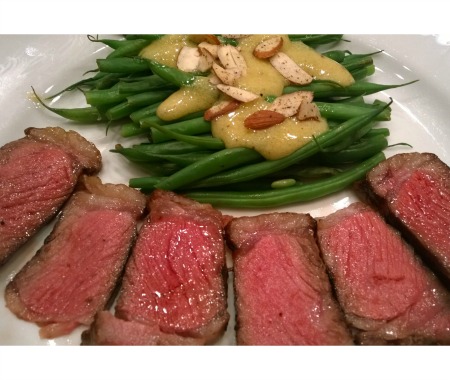
Here are 4 ounces of steak on a large dinner plate. Behind them are 12 ounces of green beans, with a mustard sauce.
Don’t eat breakfast unless you are hungry. The calories you eat at breakfast are not magic, you still have to burn them. I’ve written about the science showing breakfast isn’t the most important meal of the day in my post Is Breakfast the Most Important Meal of The Day: Nope.
Timing of Meals Effects Weight Loss is a post showing that eating late doesn’t help, and compressing your food into 9-12 hours works best. In fact, some asked the question which I related in my post – Timing of Meals: A Cure for Obesity?
So here are the tips for the day:
(1) If you are not hungry for breakfast don’t eat it.
(2) For lunch, in addition to whatever else you eat, eat two whole fruits – they can be two bananas, an apple, and a banana. If it is a fruit mix, then two whole fruits equals a cup of fruit. This is a lot of fiber and chances are all you want after this is a bit of something.
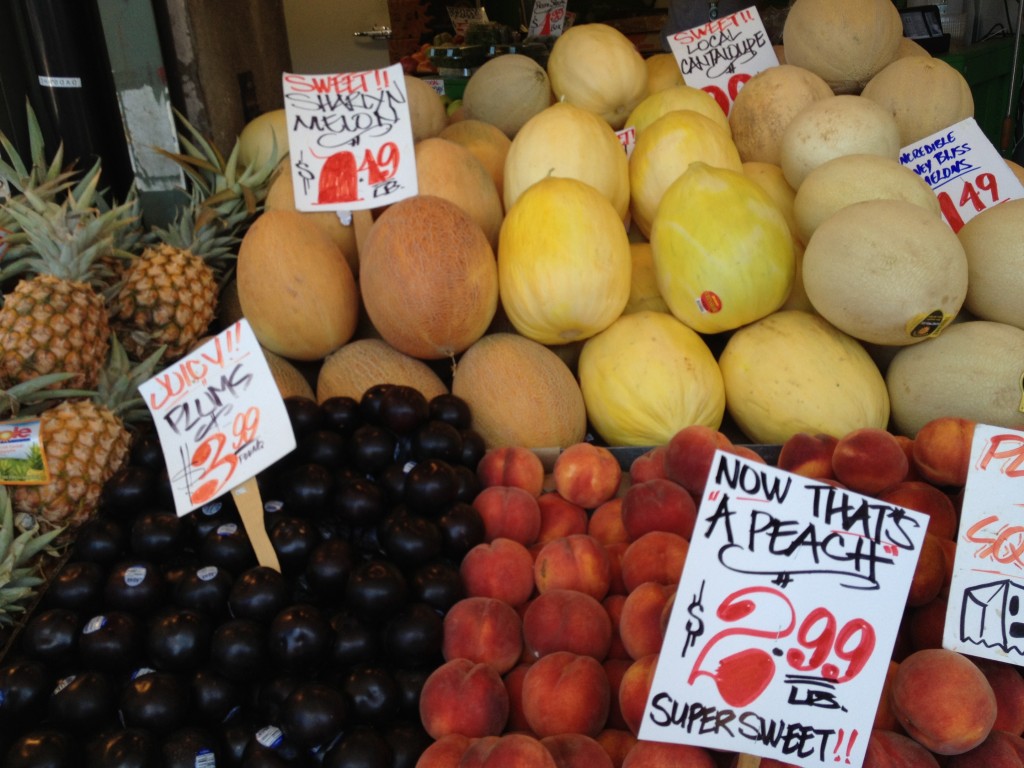
Having two fruits for lunch is a key. It fills you with some great fiber, they are portable, and you can find them almost anywhere
(3) For portable lunches, in addition to the fruit- add one bowl of either vegetarian chili or lentil soup.
4) 12 ounces of vegetables for dinner (not salad). The choices of vegetables -and you can mix and match to add up: green beans, green peas, broccoli, cauliflower, kale, brussels sprouts, bok choi, asparagus, squash.
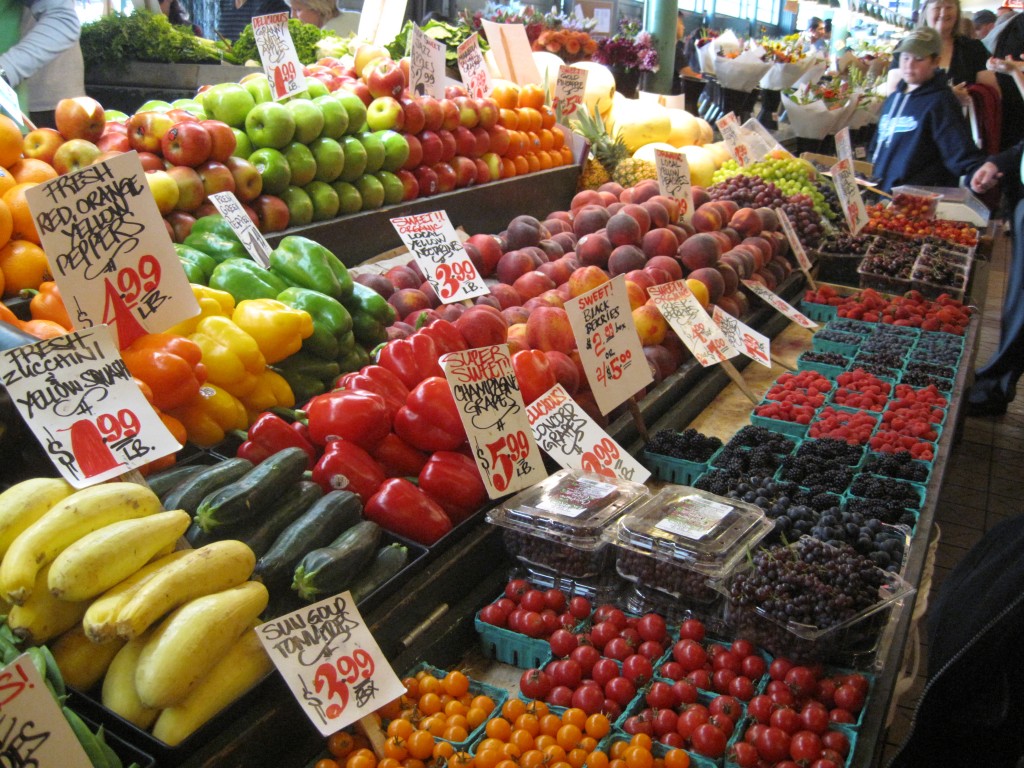
Increasing the fruits and vegetables with every meal is a key to weight loss and health
(5) 4 ounces of cooked protein (beef, lamb, fish, poultry)
Four ounces does not seem like much, but it provides 28 grams of protein. Along with the vegetables provides over 30 grams of protein.
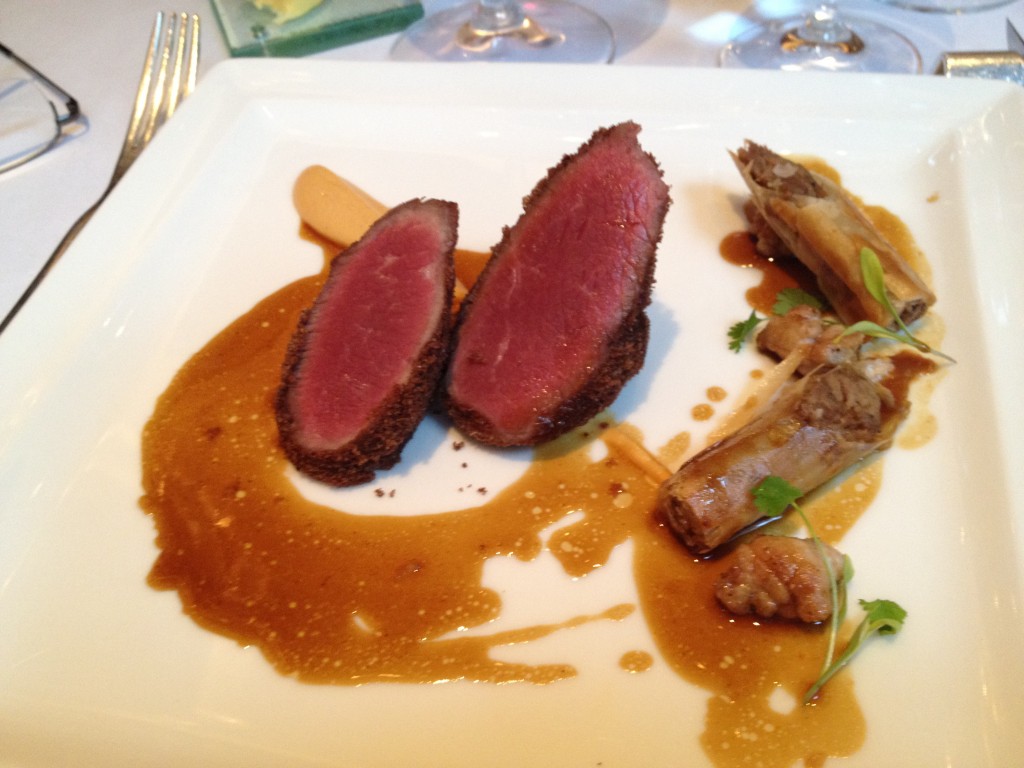
4 ounces of lamb has 330 calories – but combined with a lot of vegetables it provides a great source of protein.
(6) Fish twice a week (salmon, halibut, trout, etc).
While fish oil capsules have not been shown to reduce heart attacks or strokes, eating fish twice a week great reduces the risk of heart failure. So incorporating fish into your diet twice a week is cheaper than taking a pill, and more tasty.
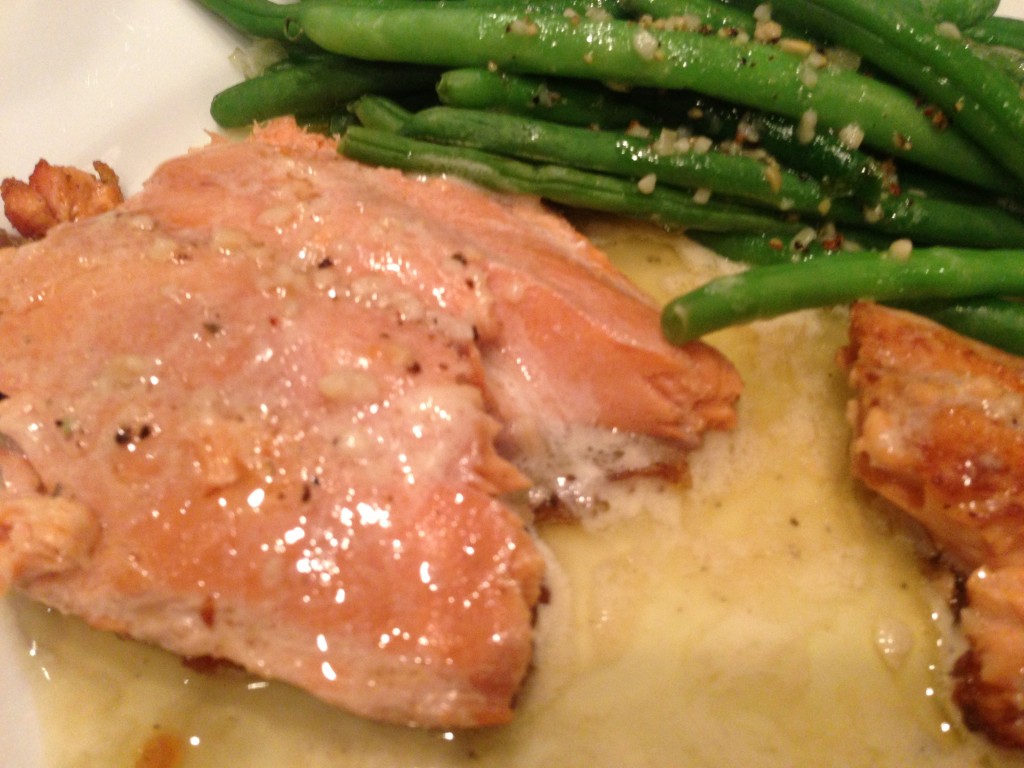
Four ounces of salmon twice a week reduces the risk of heart failure by over 10 fold.
(7) Dessert: once a week.
Dessert every night means it isn’t a treat. Once a week means you are not depriving yourself, and when you get dessert, make it a good one.
(8) Taste everything – if it doesn’t appeal to you, leave it alone, it is ok not to eat something. Especially dessert.
(9) Don’t eat anything labeled “low fat” “diet” etc.
(10) Limit free sugar to 24 grams a day for women, 36 gram a day for men.
This is the American Heart Association recommendation. 4 grams is about one teaspoon of sugar.
Finally – the best tip. Learn to cook. Sous Vide cooking is the best and easiest method to cook, and there are lots of machines out there that are less expensive.
To read about my take on Sous Vide check here. You will see on my site a couple of recommended units.
For weight loss surgery patients we change the portions, but you will see that we tackle taste in a simple and effective way: moderate portions, and make sure to eat increasing amounts of fruits and vegetables.
Final important tip: take a photograph of everything you eat in a week. Every Sunday weigh yourself. See if you have increased, decreased or stayed the same. Then look back over the food you have eaten and see what might be the issue, or if it is portion size. So- do that now- and if you didn’t keep track of the food, then think about what you ate and see if you can remember everything. I pick Sunday because that is when my newsletter comes out – if you haven’t signed up for- please do.
You can also find tasty tips about food on our Facebook site: http://facebook.com/ForkUniversity
